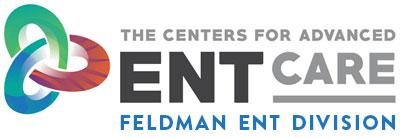Navigating the Common Yet Overlooked Reality of Age-Related Hearing Loss
As we journey through life, we inevitably accumulate experiences, wisdom, and memories. But along with these treasures, there's a less discussed companion that tends to tag along as the years go by—age-related hearing loss. It's a reality that many of us are aware of, yet the statistics surrounding it might surprise you. In this article, we'll delve into the facts and figures about hearing loss among those over 65, the potential implications for the future, and the importance of taking action.
The Gradual Shift in Sensory Perception
Just as the changing seasons bring about shifts in weather, our bodies undergo transformations as the years pass. Gray hair, diminished muscle strength, and changes in eyesight become more evident. Among these shifts is the gradual decline in hearing acuity. This phenomenon is a natural part of the aging process, one that is often accepted as a trade-off for the privilege of a long and fulfilling life.
The Not-So-Surprising Statistic
It's no secret that as we age, our senses might start to lose their edge. Hearing is no exception. So, it might not come as a shock that a third of individuals aged 65 to 74 experience some degree of hearing loss. This statistic serves as a gentle reminder that if you find yourself needing people to repeat themselves or turning up the volume on your favorite TV show, you're far from alone in this experience. Moreover, as time continues to march forward, the odds of developing hearing loss increase even further.
Projected Growth: A Sobering Reality
Let's fast-forward to the future—specifically, the year 2060. The number of Americans aged 65 and over is predicted to nearly double, soaring from 54 million in 2019 to a staggering 95 million. This projection isn't just a number on a screen; it signifies a potential shift in the way we communicate, connect, and experience the world around us.
Imagine a world with 95 million individuals asking "What did you say?" more frequently, turning up the volume on their TVs to uncomfortable levels, and unintentionally missing out on the beauty of conversations and shared moments. This potential scenario underscores the urgency of addressing hearing loss proactively.
Taking Action: A Sound Approach
While the future may hold technological advancements we can't foresee, the importance of addressing hearing loss remains constant. Ignoring or neglecting the issue can lead to feelings of isolation, frustration, and even a decreased quality of life. Fortunately, we live in an era where hearing consultations and solutions are readily available.
Scheduling a hearing consultation is not just about combating hearing loss; it's about reclaiming the richness of life's auditory experiences. Imagine the joy of hearing a grandchild's laughter, the melodies of your favorite songs, or the soothing sound of a gentle breeze rustling through leaves. By taking action today, you're investing in a future where these moments are not missed but cherished.
Looking Ahead: A World of Possibilities
As we look to the future, it's worth considering the advancements that could shape our lives. With medical breakthroughs, hearing loss might become a thing of the past. Television sets might be replaced by interactive virtual experiences, and moments could be captured and relived on-demand. However, until these possibilities become realities, taking control of our hearing health remains an empowering step.
In the grand tapestry of life, hearing loss is a thread that many of us will encounter. Rather than accepting it as an inevitable consequence of aging, we can approach it as an opportunity to take charge of our well-being. The statistic that a third of individuals aged 65 to 74 have hearing loss isn't surprising, but it is a call to action. By embracing solutions, seeking consultations, and addressing hearing loss head-on, we can ensure that the symphony of life's sounds continues to resonate with us for years to come.
Find out what noises you may be missing! Schedule an appointment today for a hearing consultation.



